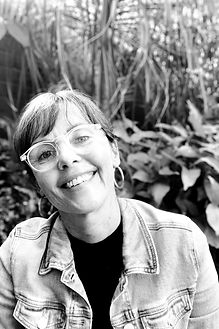Lynn Webber's Story


A descendant of Irish immigrants, Lynn was born in Tarntanya in Kaurna country (Adelaide, South Australia). She began her career as a secondary history teacher but after stumbling across a ‘truth telling’ resource one day in her school library, she painfully realised that after sixteen years of education she knew nothing about First Nations history. This realisation sent her back to university for further study and to work as a university lecturer in the First Nations Yunggorendi (Flinders University) and Uniapon units (University of South Australia).
With this groundwork behind her, a family move to Boorloo in Whadjuk Nyoongar boodjar (Perth, Western Australia) led her into education support roles for First Nations secondary and university students. During this time she also worked as a casual teacher in a juvenile detention centre and Education Lecturer at Notre Dame University.
Lynn completed this project during COVID lockdowns while living in Warrane in Cammeraygal country (Sydney, New South Wales). She has recently returned to Boorloo, Whadjuk Boodjar (Perth) where she is currently working with an education team to develop culturally responsive curriculum resources from the AIATSIS collection at the Ngurra Cultural Precinct in Canberra.
When I was a younger, passionate secondary teacher and tertiary lecturer, I filled my classes and lectures with First Nations speakers, books and media in an attempt to ‘convert’ my students to First Nations perspectives on Australia’s settler-colony story. Over time, I began to understand that the level of ‘truth telling’ about Australia’s history that I had hoped would arrive in every class across Australia, was way behind schedule. Coming to terms with that sad realisation, I asked some of the First Nations students I’d met at university if they were interested in recording their stories for an educational resource. Their ‘yes’ allowed Present Tense People to be born.
For over two decades, I worked closely alongside hundreds of young First Nations youth in prisons, schools and universities during crucial times of their transition from adolescence to adulthood. I listened to their family stories in tutorials, in homes, sitting on country, around campfires and during long car journeys across Australia’s Pilbara and Kimberley regions. Sadly, and much too often, I heard their stories as we shared common grief at funerals. Although only the stories of Koort, Birrala, Indiya, Thuwarri and Warranany made it into this book, I could have easily recorded any other stories from the many young lives I knew who shared a similar history.
I was a witness of some of the experiences shared in this book. Having walked alongside them and their families for many years, I was often on the other end of a phone call or staff on duty when situations unfolded. I was there to witness the highs of graduation, the lows of racism, the challenges of coming out, the tears of grief and the joys of birth.
As expected, truth-telling requires that these courageous and honest ‘yarns’ will be challenging at times to read. Being a witness to their stories and writing about them also left me deeply impacted. However, the questions and reflections that arise from the uncomfortable truths in each story are important fruits that can come from this book, along with the hope and optimistic vision held for their futures.
Other collaborative projects by Lynn Webber:
Keny Djena https://kenyjenna.wixsite.com/my-site/about
Not Dead Yet..Just Meditating https://notdeadyetmeditati.wixsite.com/website